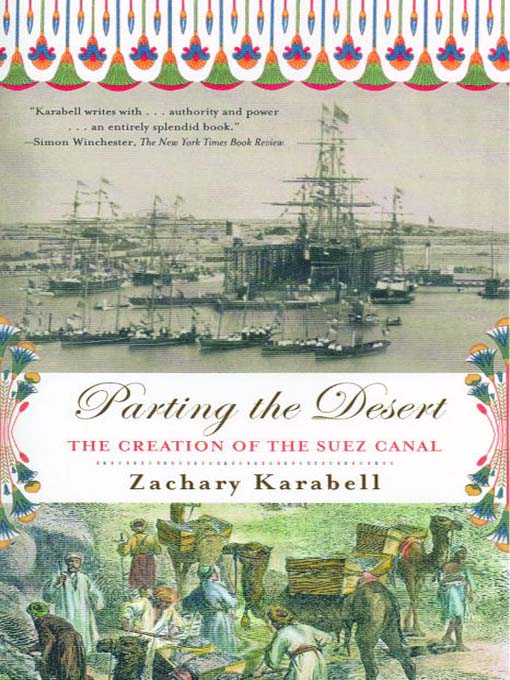The dream was a waterway that would unite the East and the West, and the ambitious, energetic French diplomat and entrepreneur Ferdinand de Lesseps was the mastermind behind the project. Lesseps saw the project through fifteen years of financial challenges, technical obstacles, and political intrigues. He convinced ordinary French citizens to invest their money, and he won the backing of Napoleon III and of Egypt's prince Muhammad Said. But the triumph was far from perfect: the construction relied heavily on forced labor and technical and diplomatic obstacles constantly threatened completion. The inauguration in 1869 captured the imagination of the world. The Suez Canal was heralded as a symbol of progress that would unite nations, but its legacy is mixed. Parting the Desert is both a transporting narrative and a meditation on the origins of the modern Middle East.
-
Creators
-
Publisher
-
Release date
August 19, 2009 -
Formats
-
Kindle Book
-
OverDrive Read
- ISBN: 9780307566072
-
EPUB ebook
- ISBN: 9780307566072
- File size: 5236 KB
-
-
Languages
- English
-
Reviews
-
Publisher's Weekly
May 19, 2003
In an ably researched and well-told account, Karabell (The Last Campaign) chronicles the origins and legacy of one of the greatest undertakings of the 19th century. While the construction of the Suez Canal across a 100-mile stretch of arid Egypt to link the Mediterranean and Red seas was largely (and rightly) seen as a marvel of engineering and planning, Karabell demonstrates that the political machinations behind the project were just as intricate and daunting. European involvement in the canal stretched back to Napoleon, but the two main players in its execution were the French diplomat Ferdinand de Lesseps and the Egyptian ruler Muhammad Said. The book skillfully outlines the intrigue among their supporters and detractors without getting bogged down in meticulous detail, and it does the same for the exacting creation of the canal itself. But Karabell does an especially fine job of balancing the ballyhoo and symbolic grandeur of what the canal was meant to be and the more or less forgotten entity it has become. He quotes de Lesseps as saying to Said,"'The names of the Egyptian sovereigns who erected the Pyramids, those useless monuments of human pride, will be ignored. The name of the Prince who will have opened the grand canal through Suez will be blessed century after century for posterity.'" Ultimately, he was wrong, and the canal became a mixed blessing for Egypt at best. But Karabell's book is more sensitive than damning, and it provides a fascinating look at an early attempt to bridge East and West at a time when such history is particularly relevant.
-
Formats
- Kindle Book
- OverDrive Read
- EPUB ebook
Languages
- English
Loading
Why is availability limited?
×Availability can change throughout the month based on the library's budget. You can still place a hold on the title, and your hold will be automatically filled as soon as the title is available again.
The Kindle Book format for this title is not supported on:
×Read-along ebook
×The OverDrive Read format of this ebook has professional narration that plays while you read in your browser. Learn more here.

